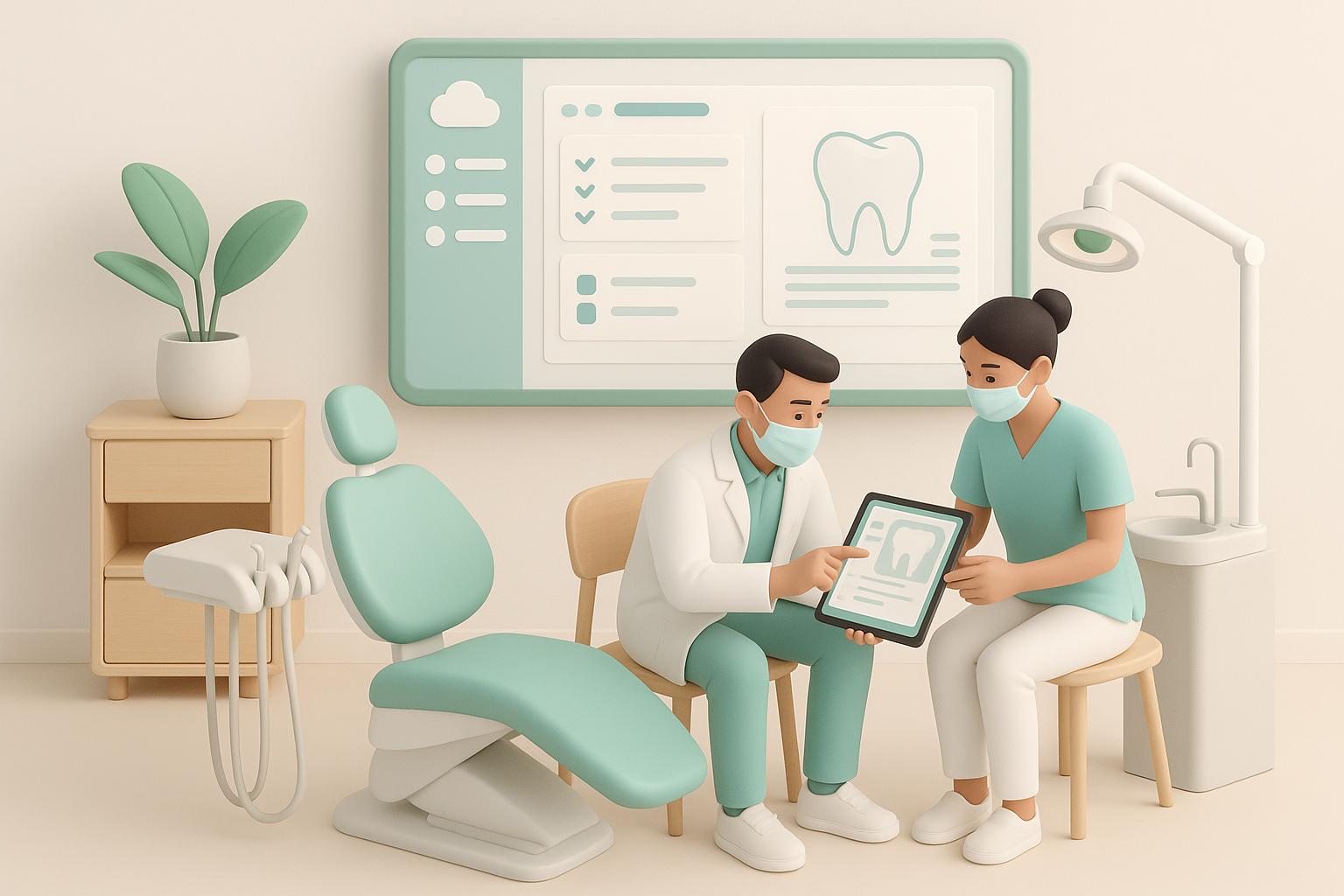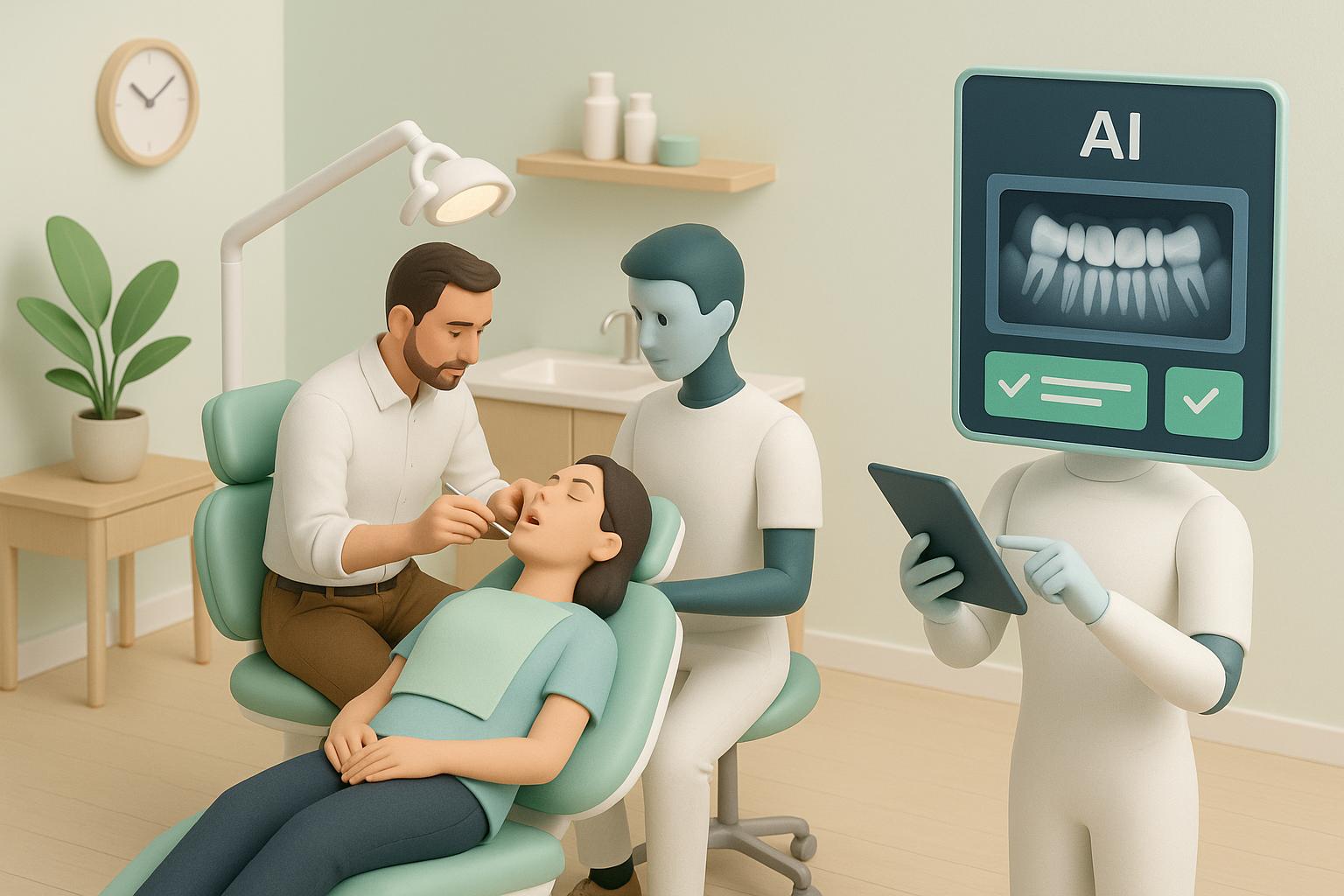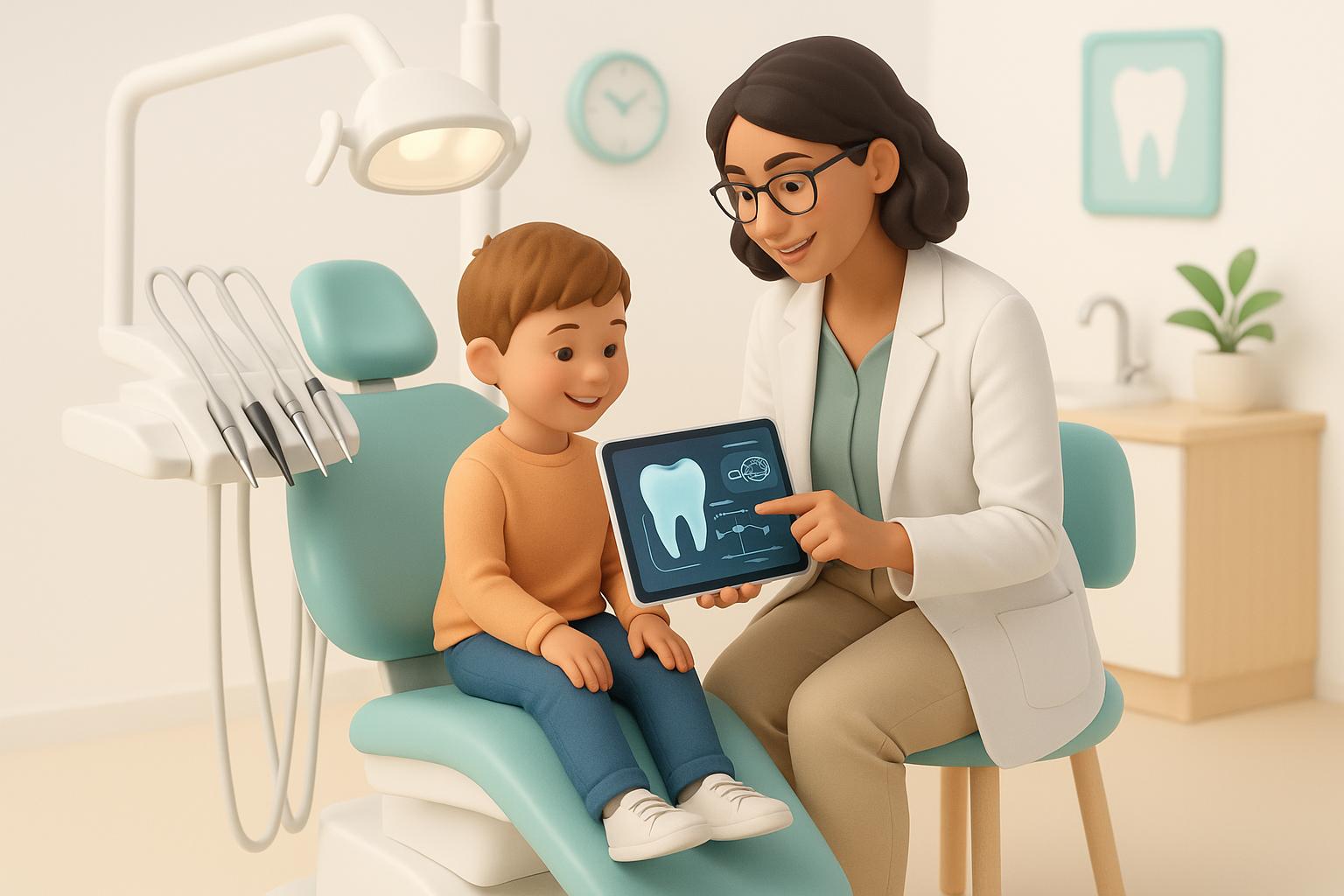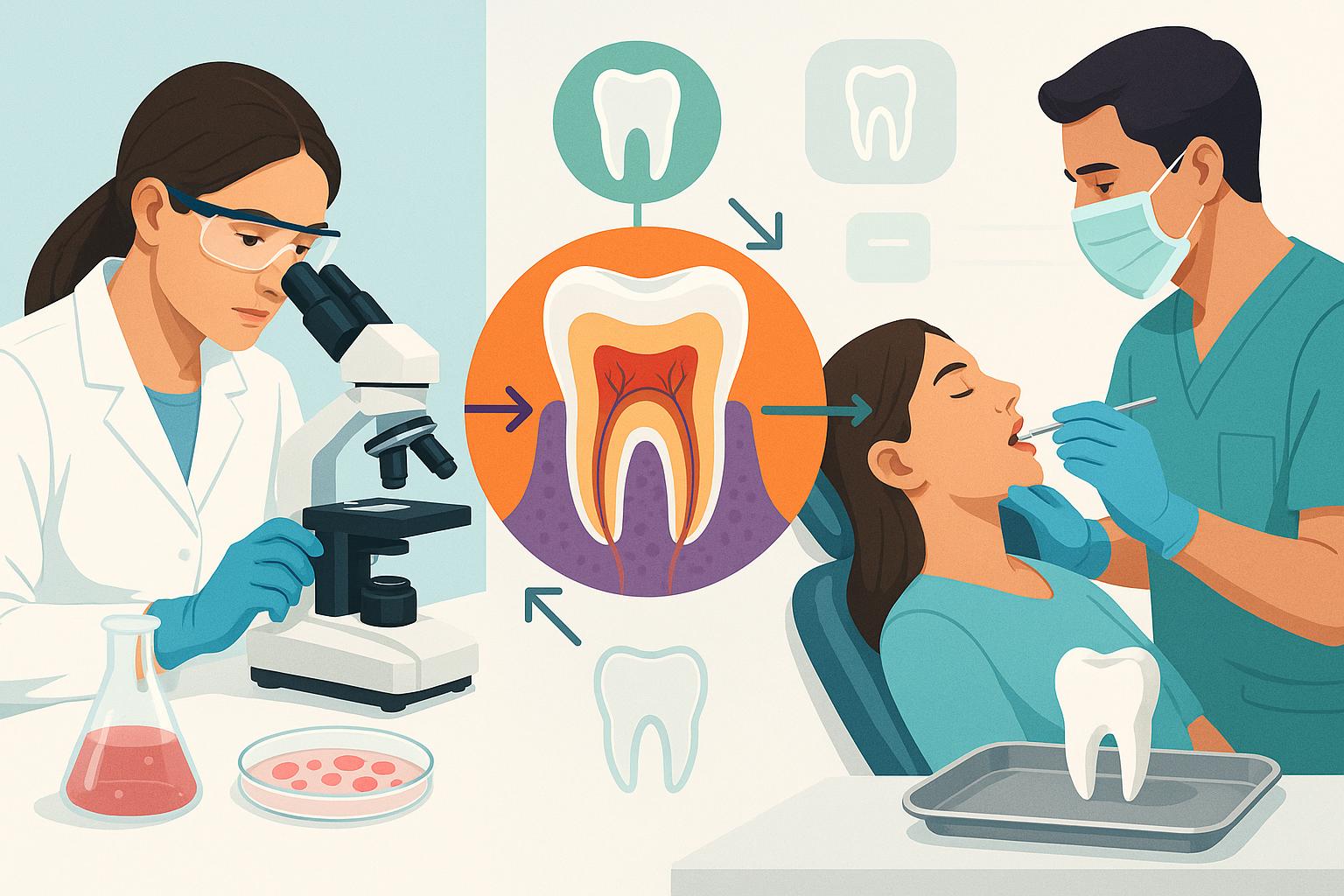Cloud Based Dental Software: Simplifying Clinic Workflow
Managing a dental clinic in 2025 comes with challenges like patient care, compliance, and tech adoption. Cloud-based dental software solves these issues by offering streamlined, secure, and accessible tools that improve efficiency, reduce costs, and enhance patient experiences.
Key Benefits:
- 24/7 Online Access: Manage patient records, appointments, and billing from anywhere.
- Cost-Effective: Monthly subscriptions (AED 735–1,835) replace large upfront investments (AED 36,750–183,750).
- Automation: Handles scheduling, billing, insurance, and reminders, saving time and reducing errors.
- Compliance: Meets UAE regulations (NABIDH, Riayati) and global standards (GDPR).
- Improved Security: Advanced encryption, backups, and multi-factor authentication.
Features:
- Patient record management
- Online booking with real-time availability
- Integrated billing and secure payments
- Real-time data syncing across locations
- AI tools for admin tasks and reporting
Cloud-based systems are transforming dental clinics by simplifying workflows, improving compliance, and delivering a better patient experience.
Dentistry In General Presents : Curve Hero, Cloud Based Dental Practice Management Software
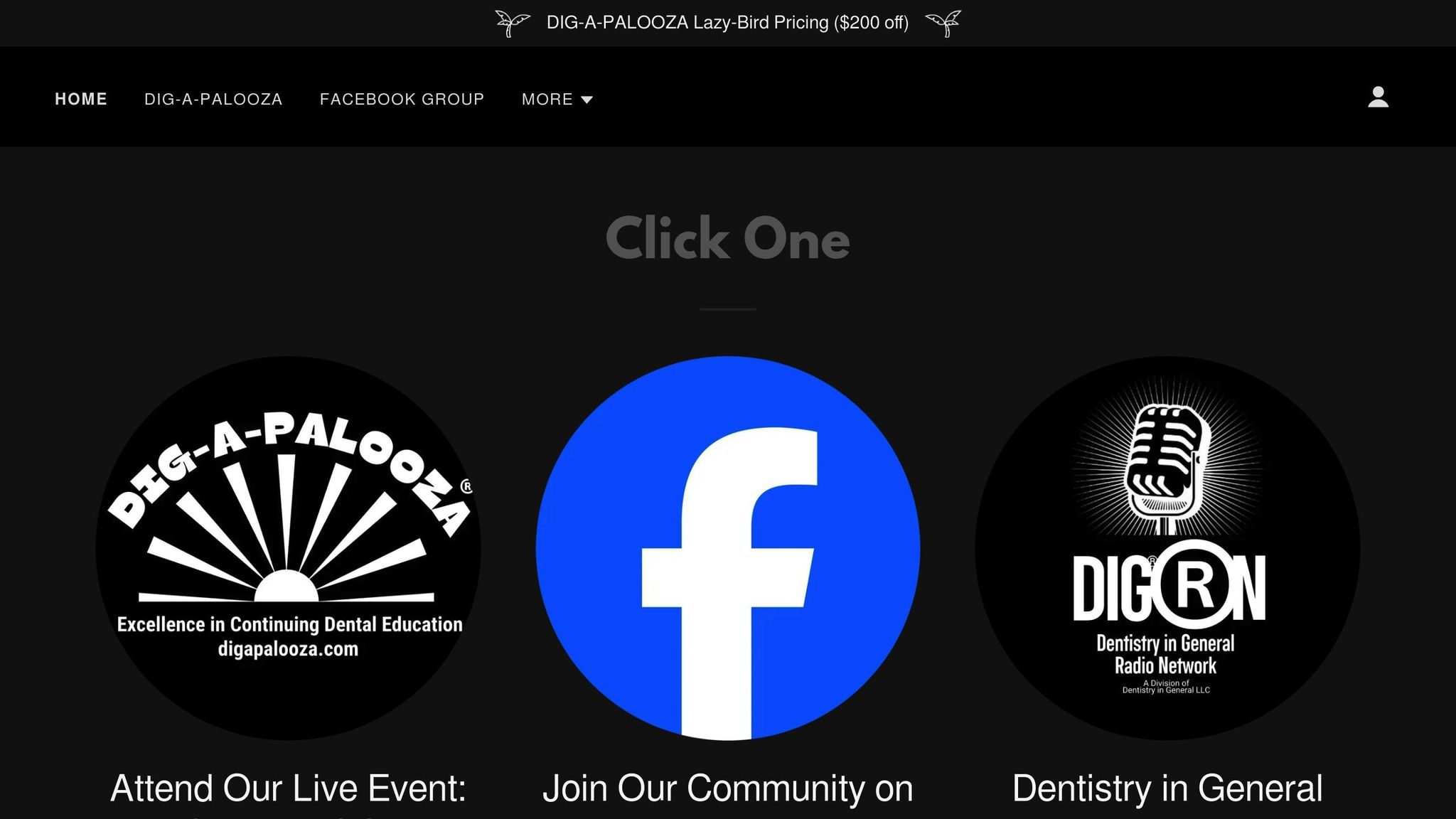
What is Cloud-Based Dental Software?
Cloud-based dental software shifts your clinic’s data storage from local computers to secure online servers. Instead of relying on hardware installed in your clinic, this system operates through a web browser or mobile app, with the heavy lifting handled by remote servers managed by cloud service providers.
This is a clear departure from traditional dental software, which needs to be installed on individual computers. With a cloud-based setup, your patient records, appointment schedules, and billing details are stored online, making them accessible from anywhere with an internet connection. This streamlined, secure approach simplifies clinic operations and enhances patient care management, as we’ll explore further.
How Cloud Software Works
Rather than relying on local servers, your clinic’s data is housed in secure data centres managed by professionals. These centres employ advanced security measures like encryption, strict access controls, and multi-factor authentication to safeguard your information.
Daily automated backups ensure your data is stored in multiple secure locations, protecting it from loss. Even if your internet connection drops or a device malfunctions, your data remains intact and accessible as soon as connectivity is restored.
Main Features of Cloud-Based Dental Software
Cloud-based systems come packed with features that make managing your clinic more efficient:
- Patient record management: All health records, treatment notes, and images are stored in one secure location. Staff can access and update information instantly, eliminating the need for paper files.
- Automated scheduling: Streamlines bookings and cancellations, while sending timely reminders to reduce no-shows. Patients can also book appointments online anytime, with real-time availability.
- Integrated billing: Handles claims, tracks payments, and applies coding automatically, minimising manual errors and speeding up revenue collection.
- Patient communication tools: Include online forms, text messaging, and secure portals. Some systems even feature AI chatbots to handle routine questions 24/7.
- Real-time data syncing: Ensures that updates are instantly reflected across all devices and locations. For instance, if a receptionist books an appointment, the dentist can see it immediately on their tablet.
Cloud-based systems typically cost between AED 735 and AED 1,835 per provider monthly [4]. This subscription-based model replaces hefty upfront costs with predictable, manageable fees.
While these features bring clear advantages, traditional software often struggles to keep up with modern demands.
Why Traditional Software Has Limitations
On-premise systems come with significant upfront expenses, ranging from AED 36,750 to AED 183,750 for hardware and licences [2][4]. Clinics need to invest in servers, install complex software, and often hire IT staff for ongoing maintenance.
Accessibility issues are another drawback. Staff can only access the system from office computers, making it difficult for dentists to check schedules from home. Multi-location practices face even greater challenges in sharing data, leading to inefficiencies and communication breakdowns.
Scaling up is also a hassle with traditional systems. Expanding your clinic or adding new staff requires additional hardware, driving up costs. In contrast, cloud systems make scaling as simple as adding new user accounts.
“Traditional client-server software can’t provide the same work environment as today’s newest cloud-based software.” - Dentrix Ascend [3]
Another major downside is data backup. Traditional systems place the burden of backups entirely on the clinic. If local backup systems fail during an emergency, critical data can be lost. Cloud systems, on the other hand, handle backups automatically across multiple geographically distributed servers, ensuring your data is always safe.
How Cloud-Based Software Improves Clinic Workflow
Running a clinic with separate systems and manual processes can be a logistical nightmare. Cloud-based dental software changes the game by streamlining operations into one unified platform. With everything connected - from appointment scheduling to billing and patient records - your team works more efficiently, reducing admin tasks and focusing on what truly matters: patient care.
Simplified Appointment Scheduling
Say goodbye to outdated appointment books and clunky desktop calendars that lead to double bookings and missed slots. Cloud-based systems, like Remedico’s Smart Calendar, bring everything into real-time. This means your team can see availability across all providers and locations instantly.
Patients can book appointments online anytime, and automated WhatsApp reminders help reduce no-shows. Got a last-minute cancellation? No problem. The system notifies patients on waiting lists, filling gaps without requiring extra effort from your staff.
“With a cloud-based system, you can view and enter information at the exact same time as your colleagues - from separate locations, and in real time.” - Dentrix Ascend [5]
For multi-location practices, this unified scheduling is a game-changer. Dentists can check their schedules from home, and receptionists can manage bookings across branches seamlessly. But the benefits don’t stop at scheduling - cloud platforms also simplify billing and patient record management.
Automated Billing and Insurance Processing
Manual billing is not just time-consuming - it’s prone to errors. Cloud-based systems automate critical tasks like claim submissions, payment tracking, and follow-up reminders, freeing up your team for more important responsibilities.
Insurance verification becomes a breeze. As soon as an appointment is booked, the system checks coverage details, co-pays, and preauthorisation requirements. This avoids surprises for both patients and staff, ensuring smooth payment processes and no delays in treatment.
Integrated payment options also make life easier. Patients can pay securely online, through mobile apps, or via payment links, speeding up collections. Treatment codes are applied automatically based on procedures, reducing coding errors. Even if a claim gets denied, the system flags the issue and provides reasons, so it’s resolved quickly.
With tools like RemedicoGPT™, administrative tasks become even simpler. Need a detailed billing report or insurance forms? Just type a request, and the system delivers the data in seconds. By automating billing, your team has more time to focus on centralising patient records, ensuring everyone stays informed and up-to-date.
Centralised Patient Records and Data Access
Having all patient information in one secure, centralised location is a massive advantage. Cloud-based systems eliminate the inefficiencies of scattered records, giving your team instant access to complete patient histories - treatment notes, X-rays, photos, prescriptions, and payment records - all in one place.
Imagine a dentist reviewing a patient’s full medical history on a tablet while moving between treatment rooms. This level of accessibility ensures seamless care and continuity.
“Unlike traditional systems that rely on in-office servers and manual updates, cloud-based software stores your data securely online. That means you can access patient records, schedules, and clinical tools anytime, from anywhere.” - Balaji Mahanam, Head of Product, Practice, Overjet [1]
Updates to treatment notes are instantly visible to everyone. AI assistants like RemedicoGPT make retrieving information as easy as typing a question - whether it’s a patient’s recent visit history or other critical data. In emergencies, dentists can even access records from home, enabling faster responses and better patient outcomes.
The platform’s Owner’s Dashboard offers a bird’s-eye view of clinic performance and patient flow. This helps your team stay aligned, communicate effectively, and deliver well-coordinated care. Cloud-based software doesn’t just improve efficiency - it transforms how clinics operate, ensuring patients receive the best care possible.
sbb-itb-d8b42ea
Main Benefits of Cloud-Based Dental Software
Switching to cloud-based dental software can bring noticeable improvements to your clinic’s operations, directly affecting both profitability and patient satisfaction. It’s not just about convenience; these systems offer cost savings, improved compliance, and a smoother patient experience.
Lower Costs
One of the biggest advantages of cloud dental software is the reduction in upfront costs. Instead of spending AED 37,000 to AED 184,000 on hardware and setup for traditional systems, cloud solutions operate on a predictable monthly subscription, typically ranging from AED 367 to AED 1,837 per provider [4][7].
You’ll also save on IT staffing and maintenance since vendors take care of updates, backups, and security. Automating tasks like appointment reminders, billing, and patient intake not only reduces staff workload but also helps minimise no-show rates, leading to steadier revenue streams.
“With a low initial cost and lower overall IT costs, cloud-based software offers budget relief to small business owners. You get more value for your money with a cloud solution because you’re not paying for software features you don’t need. And, with a monthly subscription, your IT costs are predictable and your budget forecasts more accurate.” – Dentrix Ascend [6]
It’s no surprise that 92% of small-to-medium businesses have adopted at least one cloud solution, recognising the financial benefits [6]. Beyond cost savings, these systems also simplify compliance with local regulations.
Better Compliance and Security
Cloud software aligns with UAE regulations, integrating seamlessly with systems like NABIDH, Malaffi, and Riayati. For instance, in 2025, Remedico.app achieved full Riayati compliance for practices in the Northern Emirates.
“Our full Riayati compliance means that dental clinics no longer need to compromise between having exceptional practice management software and meeting regulatory requirements. With Remedico, they can have both.” – Nataliia Romanova, Founder and CEO [10]
Security is another strong point. Cloud-based platforms provide advanced measures like data encryption, secure transmission protocols, and automated patient consent management. They also ensure compliance with UAE cybersecurity standards such as ADHICS and NESA by handling HL7 formatting and generating detailed audit trails [12][13]. Such features are crucial for maintaining smooth and secure operations in today’s regulated healthcare environment.
Better Patient Experience
Cloud solutions don’t just streamline operations - they also significantly improve the quality of patient care and satisfaction. Features like 24/7 online booking, automated reminders, and digital forms make the patient journey more convenient. In fact, over one-third of patients now prefer scheduling appointments online rather than over the phone [9].
These enhancements make a real difference to your bottom line. Retaining an existing patient is far less expensive than acquiring a new one - up to 25 times cheaper, in fact [8]. Moreover, cloud platforms elevate care quality by offering instant access to complete medical histories, AI-powered diagnostics, and treatment visualisation tools that help patients better understand their conditions.
“The medical records module has transformed our documentation process. We’ve reduced charting time by 40% while improving our compliance posture.” – Dr. Ahmed from Dubai Smile Clinic [11]
Integrated features like online payments and flexible payment plans further simplify the billing process, reducing administrative calls and fostering stronger patient loyalty.
3 Common Mistakes When Choosing Cloud-Based Software
Selecting the wrong cloud-based dental software can lead to unexpected costs and operational hiccups. Many dental clinics in the UAE encounter these challenges, but with careful planning, they can be avoided. Spotting these issues early can help you find the right solution for your clinic.
Choosing Based on Price Alone
Focusing only on price might save money upfront, but it can lead to hidden expenses down the line. Budget-friendly options often lack critical features, requiring costly add-ons like patient reminders, advanced reporting tools, or integration with insurance systems.
“Choosing the best dental software based solely on price is like buying a cheap car that breaks down every other week. Sure, you saved money upfront, but the long-term costs (and headaches) will add up fast.” – Adit.com [14]
Sometimes, a system with a slightly higher monthly fee offers better value by including comprehensive features, training, and support. As one expert put it, “A low-cost system may lack essential features, require expensive add-ons, or fail to scale with your practice’s growth.” – Adit.com [14]
Ignoring Local Regulatory Requirements
Cloud software must comply with local regulations to protect your clinic and its data. Many international solutions fail to address the specific needs of UAE dental clinics, such as NABIDH integration, Riayati compliance, or adherence to UAE data protection laws.
If your clinic deals with EU patients or processes their data, you must also align with GDPR alongside UAE regulations. The UAE’s Federal Data Protection Law and Health Data Law impose additional requirements, and there are notable differences between GDPR and HIPAA. For instance, GDPR requires explicit consent for data processing and mandates breach reporting within 72 hours, while HIPAA allows more time in certain cases [15].
Choosing software that doesn’t align with these local and international standards can lead to operational headaches and even regulatory penalties. Without proper UAE-specific integration, tasks like government reporting may require manual data handling, increasing the risk of errors and inefficiencies.
Poor Planning for Data Migration
Beyond cost and compliance, ensuring the integrity of your data is critical. Data migration projects often run over budget and take longer than expected. For dental clinics, this can result in lost patient records, extended downtime, and workflow disruptions.
Healthcare generates an enormous amount of data - around 30% of the world’s data comes from this sector, with an annual growth rate of 36% [16][18]. Your clinic’s patient records, treatment histories, and billing details represent years of valuable information that must be transferred accurately to the new system.
Many clinics underestimate the complexity of data migration. They assume their current vendor will provide data in a format that easily integrates with the new system. However, software platforms often use incompatible data structures, requiring extensive data mapping.
A study by Experian revealed that 64% of data migration projects exceeded budget, and fewer than 70% were deemed successful [17]. These failures are often due to inadequate preparation rather than technical issues. Skipping data audits, ignoring migration tests, or failing to back up data can lead to significant problems. Successful migration requires careful planning, data cleaning, multiple test runs, and strong backup procedures. Partnering with a vendor familiar with UAE healthcare data requirements is crucial to ensure all patient records, treatment histories, and billing details are transferred accurately and securely.
Conclusion: How Cloud-Based Software Changes Dental Clinics
Cloud-based dental software is redefining how clinics operate by making workflows simpler, ensuring compliance, and improving patient care. Transitioning from traditional systems to cloud solutions marks a major step forward for dental practices, offering a more efficient way to manage operations in today’s competitive healthcare landscape.
With real-time access to records, billing, and scheduling, clinics can overcome the bottlenecks often associated with older systems. This ensures smoother, error-free operations. Whether staff are working across multiple locations or handling tasks remotely, collaboration becomes seamless, reducing mistakes and speeding up services for a better overall experience.
Compliance Made Easy
Staying compliant with local and international standards has never been simpler. Automated updates ensure that clinics meet regulations like NABIDH and Riayati without manual intervention. For clinics in the UAE, this means adhering to data protection laws effortlessly, avoiding the risk of missed updates or penalties.
Centralised data and integrated communication systems not only help with compliance but also improve appointment scheduling and follow-up care. Automated reminders and quick access to records reduce missed visits, enhancing the patient experience.
Tailored for the UAE Market
Choosing software designed for the local market is a game changer. Localised solutions ensure compatibility with UAE-specific regulations, support for AED currency formats, and alignment with cultural expectations. When your software integrates with local insurance providers, offers Arabic language options, and handles UAE-specific reporting requirements, your clinic runs more efficiently and stays compliant.
Additionally, predictable monthly costs and reduced infrastructure demands mean clinic owners can focus more on patient care rather than worrying about technology management.
Cloud-based dental software is setting a new benchmark for modern dental practice management. The key is selecting a solution that aligns with your clinic’s unique needs and local requirements.
Try Remedico for free - simplify clinic management without the extra hassle.
FAQs
Is cloud-based dental software safer for patient data compared to traditional systems?
Yes, cloud-based dental software offers a higher level of security for patient data compared to traditional setups. It employs strong encryption methods, rigorous access controls, and round-the-clock monitoring to keep sensitive information safe. Unlike on-site servers, which can be at risk from physical damage, theft, or localised cyber-attacks, cloud systems store data in secure online environments with automatic updates and advanced security measures.
By centralising data protection, cloud solutions also minimise the dangers posed by hardware failures or unauthorised access. This not only helps your clinic meet data security regulations but also reinforces patient confidence in how their information is handled. :::
What challenges might clinics face when switching from traditional dental software to cloud-based solutions?
Switching from traditional dental software to a cloud-based system comes with its own set of challenges that clinics need to anticipate. One of the biggest concerns is data security and privacy. Patient information is highly sensitive and must comply with strict local regulations. To address this, clinics may need to put extra safeguards in place to ensure that all data remains secure and protected.
Another issue is internet reliability. Since cloud-based systems rely on a stable connection, clinics in areas with inconsistent internet service might face interruptions that could disrupt access to essential tools. This makes reliable connectivity a key factor to consider before making the switch.
The learning curve for staff is another hurdle. Team members who are unfamiliar with cloud technology may find the transition challenging, potentially slowing down the adoption process. Providing comprehensive training and ongoing support can help ease this adjustment and ensure everyone is comfortable with the new system.
Finally, the process of migrating large volumes of patient data can be time-intensive and intricate. Careful planning is essential to minimise any disruptions to daily operations during the transition. Working with a dependable provider can make this process smoother and help address these challenges effectively. :::
How does cloud-based dental software enhance patient experience and improve retention in clinics?
Cloud-based dental software transforms the way patients engage with your clinic by providing online appointment scheduling and two-way communication tools. These features make it simple and convenient for patients to connect with your practice, removing barriers and enhancing their overall experience.
With access to digital records and treatment plans, patients can stay informed about their care, which builds trust and boosts satisfaction. When patients feel included and knowledgeable about their treatment, they’re more likely to feel confident in your services.
The software also takes patient care a step further with automated reminders and personalised follow-ups. These thoughtful touches show patients they’re valued, help reduce no-shows, and create a more seamless experience. Over time, these features not only improve patient engagement but also encourage repeat visits, strengthening loyalty to your practice. :::

